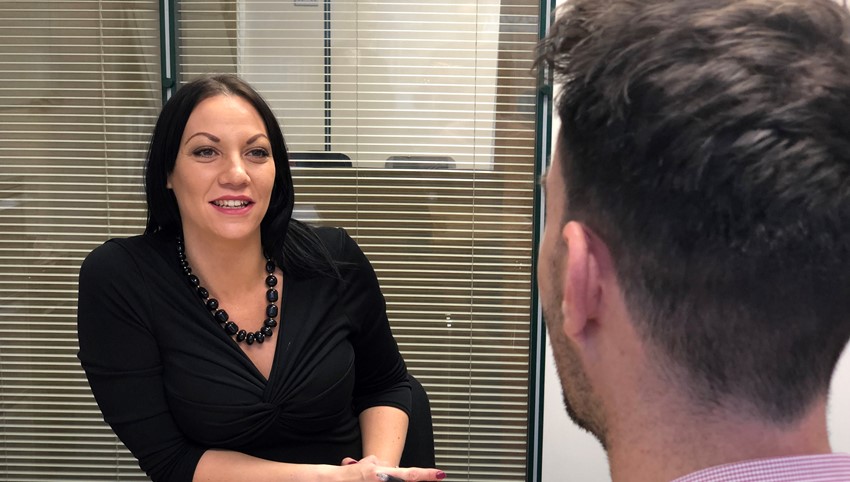
Authors
Jessie Reid, Admin & Marketing Coordinator, FPR Group
Tracy de Pass, Technical and Engineering Manager, FPR Group
Throughout our Women in Engineering Week 2018, FPR Group has been reaching out to different members of the industry, and today we’re interviewing Tracy de Pass, one of our own team, who's been in the engineering industry for 12 years.
Tracy joined FPR Group as a Resourcer in 2006, and is now the Manager of our Technical and Engineering division. She has seen the numbers of women rising in the industry, and had some interesting stories along the way…
So how did you get into recruitment?
Tracy: I actually just came in here to register as a candidate! I started as a temporary Resourcer in Engineering, and I actually applied for a role in the Commercial division, as I didn’t have any engineering experience or knowledge. However, my manager didn’t see why I couldn’t just learn, so I did! So now for the past 12 years, I’ve spent the entire time in Engineering division.
Sometimes I felt that as a female in a predominantly male industry, I felt like I needed to be more knowledgeable.
By Tracy de Pass, Technical and Engineering Manager at FPR Group
Have you ever experienced discrimination as a woman yourself in engineering recruitment?
Tracy: Yes, initially it was quite common that if I phoned people or they approached me, they’d assume I was my manager’s receptionist… And sometimes because I worked in engineering, I found I had to justify myself a little bit more. That could have just been me feeling that way, but I wanted to be taken seriously. Sometimes I felt that as a female in a predominantly male industry (all of my clients were male), I felt like I needed to be more knowledgeable. I felt like I had to try harder to make sure they were aware that I knew what I was talking about. I was quite young at the time as well, and I did sometimes find that they would be quite sceptical initially.
So has that changed over the years?
Tracy: Yes, so when I first started, I didn’t come across many female recruiters in engineering, but now it’s really common. Nobody bats an eyelid now. When I used to go on shop floors for example, it could be quite intimidating as a woman, because it was all male. There were a couple of machine shops I went into, where they were smoking on the shop floor, and it wasn’t uncommon for them to make comments. I was never made to feel uncomfortable though.
How has the recruitment of other women into engineering changed over the years?
Tracy: Oh, a lot. The first female engineer I placed was in 2007 and she’s actually contracting for us now! At the time, CNC engineers were our biggest thing and if we sent one out on a speculative basis, literally within the hour, the phone would be ringing off the hook to interview them. I sent a lady to over 40 companies and only one company came back, which was really rare. I don’t know if there was a perception that maybe physically, she wouldn’t have been capable.
The company that interviewed her didn’t actually have the facilities to cope with a female engineer on shift. They still took her on, but they only had one toilet open on the shop floor, and obviously they needed to have another toilet open. It just meant that when she was on shift, they had to open a part of the office building so she could use the ladies’ toilet in there. There are little things like that, which happened years ago, that you wouldn’t really find now. They would just automatically put in both toilets now, I would imagine. For them, it was actually quite a big issue at the time because they physically weren’t equipped to deal with females.
Now all of our clients get excited if I send over a female engineer's CV.
By Tracy de Pass, Technical and Engineering Manager at FPR Group
Whereas now, all of our clients get excited if I send over a female engineer’s CV. They’re excited to see women in engineering because obviously in any team, you want a mix of people, no matter the industry. It was very rare that I placed any females 10-12 years ago. That has gradually changed, but it’s still a very small percentage of the people I place. In 20 people for just engineering roles, only 2 or 3 would probably be female.
What do you think is the biggest obstacle for women within engineering now?
Tracy: I would probably say getting into it in the first place. It’s not something that’s necessarily pushed in school, although it’s starting to. I think that’s where it needs to start changing, and they are already doing things, but I think anything we can do to capture those at school age to raise awareness so people understand it’s not a male-dominated industry.
I think there are stereotypes that people that people have perceived from the past, but the industry needs females because they add a different dynamic. I think a lot of men would welcome having a female on the team; it just brings a different perspective.
We hope our Women in Engineering Week 2018 can be a platform to encourage conversation, invite ideas and tackle this issue openly, so feel free to comment your ideas and share!
Read tomorrow's article here: Diversity in the Engineering: Is the Problem in the Workplace?
If you're interested in engineering roles, our current Job of the Week is a Master Scheduler!
